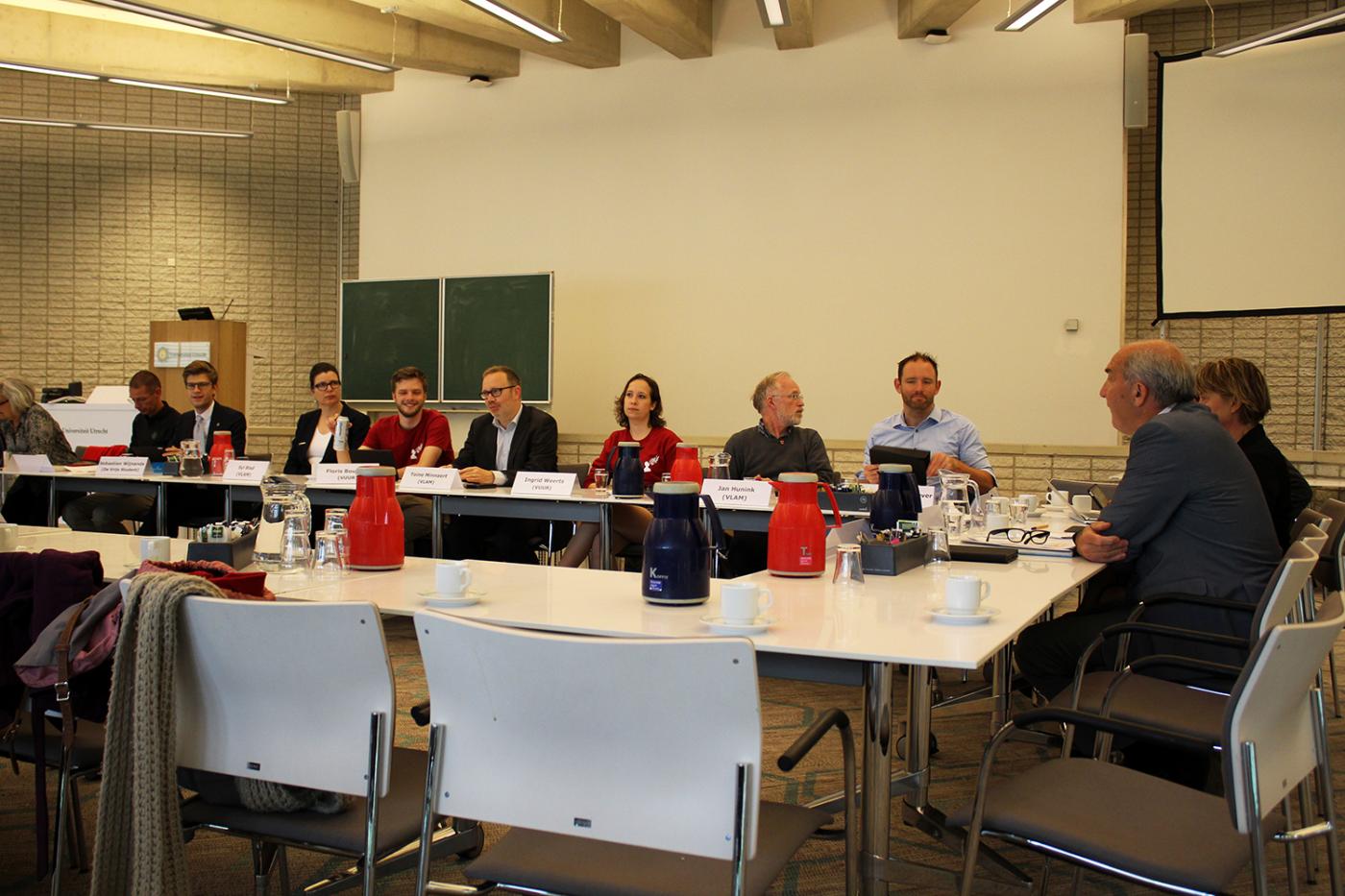University board promises lower travel costs

The UU Executive Board will not spend more than 100,00 euros on commuting and business trips. That is the promise made by the Executive Board in a specially planned council meeting, responding to the fierce criticism on the declarations of their travel costs. For the long term, the board members want to attempt a more thorough reduction of the costs, but the power to do so lies mostly with the Supervisory Board, as they’re responsible for the board members’ employment conditions. The possible measures will be discussed with the council.
The Executive Board, especially president Anton Pijpers, were under fire last month for their high travel and transport costs as declared in 2018. Together, they spent 180,000 euros on travelling, of which 124,000 euros could be attributed to Pijpers. It was especially the use of a professional car with driver for his commute between Utrecht and Zutphen that was remarked upon.
The issue made the national news when council member Floris Boudens, frustrated by the air of nonchalance of the others in the university council, took the matter to national politicians. GroenLinks member of Parliament Zihni Özdil asked for an explanation, and minister Van Engelshoven has since asked the Education Inspection to study the travel costs. On Tuesday, several national media outlets visited De Uithof.
More time needed
The Executive Board has consistently said that the expenditures are transparent and comply with regulations. “But we do realise the costs are high,” Anton Pijpers said in his opening speech on Tuesday. For this reason, the board had already decided last year to let one of the two professional cars and drivers go, the UU president said. On top of that, Pijpers will be moving to Utrecht soon. For these reasons, he was able to promise the council that the total expenditure of the board would be less than 100,000 euros.
The Executive Board also said it wishes to satisfy the council’s call for further reduction of the travel costs in the long term. The most important question in this is whether or not a professional car with chauffeur is needed for the UU board members. For an answer to that question, however, the board needs more time, said vice-president Annetje Ottow. “We’re not in charge of our own employment conditions. We need the Supervisory Board on this.”
Student council party VUUR had already sent a letter to the Supervisory Board once before. In it, the party calls for a maximum amount of 40,000 euros for travel reimbursement, and more transparency of the expenditures. A meeting between the council and the Supervisory Board is planned to take place in the short term.
Discussing scenarios
In their responses, the student council parties voiced their appreciation for the board’s gestures. They did, however, want more clarity about the exact route the Executive Board and the Supervisory Board will take together.
President Pijpers suggested meeting with the council soon to discuss possible scenarios. He did not yet want to state definitively whether this would be done in public or closed setting. The new measures and the financial implications of these measures should be clear by the time the budget for 2020 is discussed in December.
Council member Bina Chirino from the VUUR party emphasised that students and employees in the council will all commit to a future in which board members will no longer use professional cars or taxis for their commutes. For trips made for business purposes, a lease car with chauffeur should only be used if it can be proven this is more efficient and cheaper than a taxi.
When asked, Pijpers said not to renounce his statements from an earlier council meeting. Then, he’d said the professional car was a condition for doing his work ‘properly, timely, and in confidence.’ “But I’m open to other scenarios. We’re going to take a look at those now.”
Erosion
Finally, rector Henk Kummeling voiced his discontent with the fact that discussions about Utrecht University policy have mostly played out in The Hague this past year. At an earlier point, members of parliament had discussed and criticised the university’s diversity policy, after council members had complained about it in the media. “If we don’t hold these types of debates in all openness in our own home first, it’ll be an erosion of the university’s democracy,” he warned.
Council member Floris Boudens responded with a few cautionary comments on said university democracy, in which he, as critical individual, isn’t heard. “But on top of that, I don’t see why we should exclude national politics. Aren’t they representatives of the people?”
Kummeling: “Members of Parliament are elected in relation to the government. As university council, we do not have a relation of accountability with parliament, we’re held accountable by the University Council. That’s why we wish to have this debate with you.”